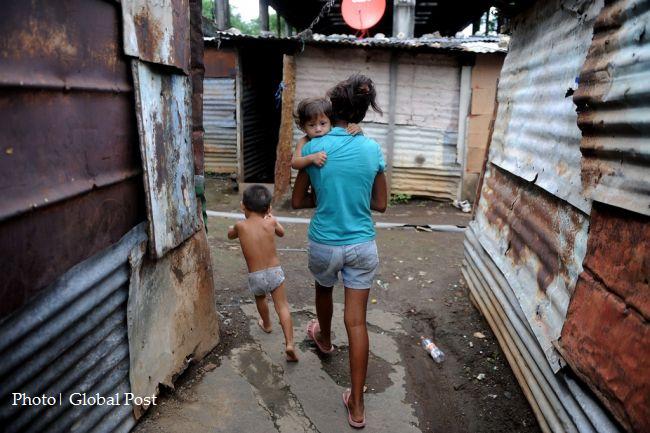To advance a training program that prepares a new generation of interdisciplinary practitioners.
The UCLA Blum Center facilitates interactive and applied learning experiences through the creation of educational initiatives and programming that provides students, researchers, community leaders, public/private sectors and policy makers with new knowledge, skills and perspectives essential for crafting and implementing sustainable solutions to health and poverty challenges.
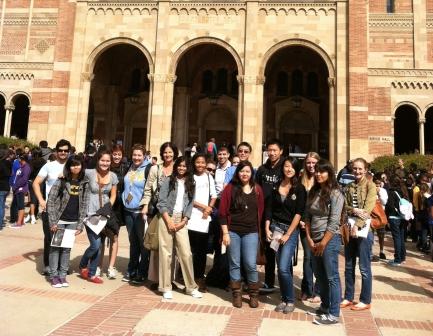
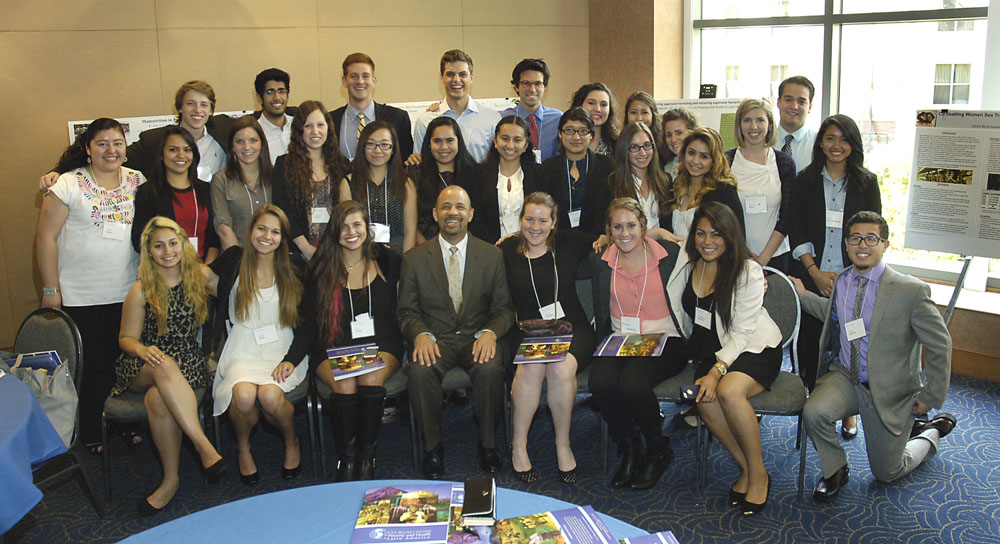
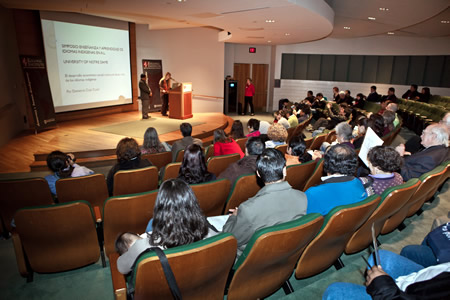
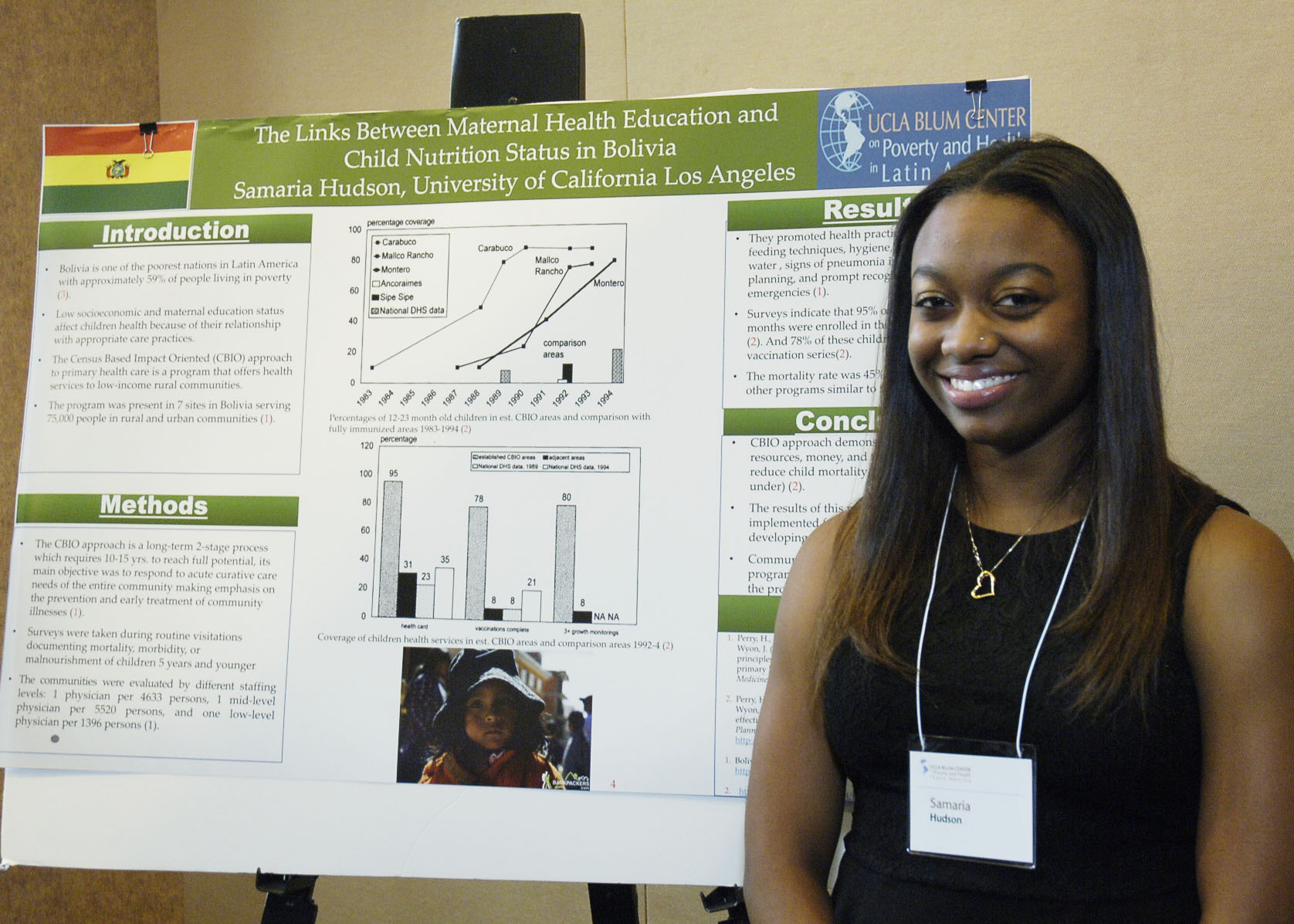
Global Health Minor
The new minor in Global Health offered through the UCLA International Institute starting in fall of 2015 is built upon a growing interest at UCLA for global health academic coursework and training, and the foundation in global health education established by the UCLA Blum Center's Poverty and Health in Latin America cluster course. UCLA Blum Center Director Michael Rodriguez, MD, MPH, serves as Chair of the Global Health Faculty Committee for 2015-16, and the faculty leadership of the Global Health minor reflects interdisciplinary collaboration across campus: Family Medicine, Health Policy and Management, Political Science, and World Arts and Cultures/Dance.
The minor in Global Health allows students to develop an interdisciplinary understanding of health issues in a global context. Through a broad inventory of courses, the minor in Global Health provides a solid foundation in, and familiarity with, social determinants of health, epidemiology, environmental health, nutrition, data collection, and evaluation methods. Students undertaking the Global Health minor explore the institutional, economic, logistic, legal, and social challenges facing global health solutions, investigate the health implications of globalization, as well as address issues of social justice and development, which are crucial to understanding the determinants of health issues around the world.
For more information about the Global Health minor, visit the website or contact Magda Yamamoto, Academic Counselor, UCLA International Institute Academic Programs at undergrads@international.ucla.edu.
Health Equity, Civil Rights, and Health Impact Assessments: Promoting Social Justice for Historically Marginalized Communities
Offered through the David Geffen School of Medicine and developed in part by UCLA Blum Center leadership, this course fundamentally examines health as a universal human right. Despite the internationally agreed principles of health for all people, by all people and in all policies and the commitment to measure and act on health inequity, there is a need to agree on objectives and strategies towards the common goal of best feasible health for all. Civil rights laws and Health Impact Assessment (HIA) methodologies are becoming useful tools for understanding, and ultimately addressing, the potential health outcomes of proposed policies, plans, or projects on communities. This is particularly important when considering communities that have been historically marginalized. Historical practices of discrimination have impacted the health outcomes of marginalized communities along the lines of race, ethnicity, income, education, class, gender and sexuality, among other social categories. Thus, this course addresses the importance to commit to health equity as a core value in health practices. Through a social justice lens the course will:
- Introduce students to health equity and disparities in the context of historical discrimination and advocacy through civil rights laws;
- Offer potential ideas on how civil rights laws, through HIA, can help promote health equity.
The course features guest lecturers from the multiple disciplines of law, public health, and medicine to expand on and learn from social justice scholarship. Students critically engage with faculty and the material presented in class. For more information, contact Brandon Susselman, Student Affairs Office, David Geffen School of Medicine at UCLA, BSusselman@mednet.ucla.edu.
Poverty and Health in Latin America course: 2012 - 2015
The Poverty and Health in Latin America course was a yearlong course offered as part of UCLA's Freshman Cluster Program, was funded and directed fully by the UCLA Blum Center, and has served as a foundation for creating the UCLA Global Health Minor. The cluster course focused on helping freshmen develop an understanding of the conditions in which people are born, grow, live, work, and age influence their health and access to health care. The course examined health inequities in Latin American countries and communities in a multi-disciplinary approach, based upon the social determinants of health including sex, race, ethnicity, socioeconomic status, poverty, religion, governance, politics, and foreign policies. During the academic year, students in this class learned the conceptual framework of interrelationships between social determinants of health in Latin America and become familiar to the science of health, including epidemiology, environmental health, nutrition, data collection, and assessment methods. Introductory medical public health articles and articles from other fields exposed students to current methods of conducting scientific research. The articles formed the basis for discussions on basic scientific methodology, uncertainty and related implications of scientific work.
Syllabus topics included:




